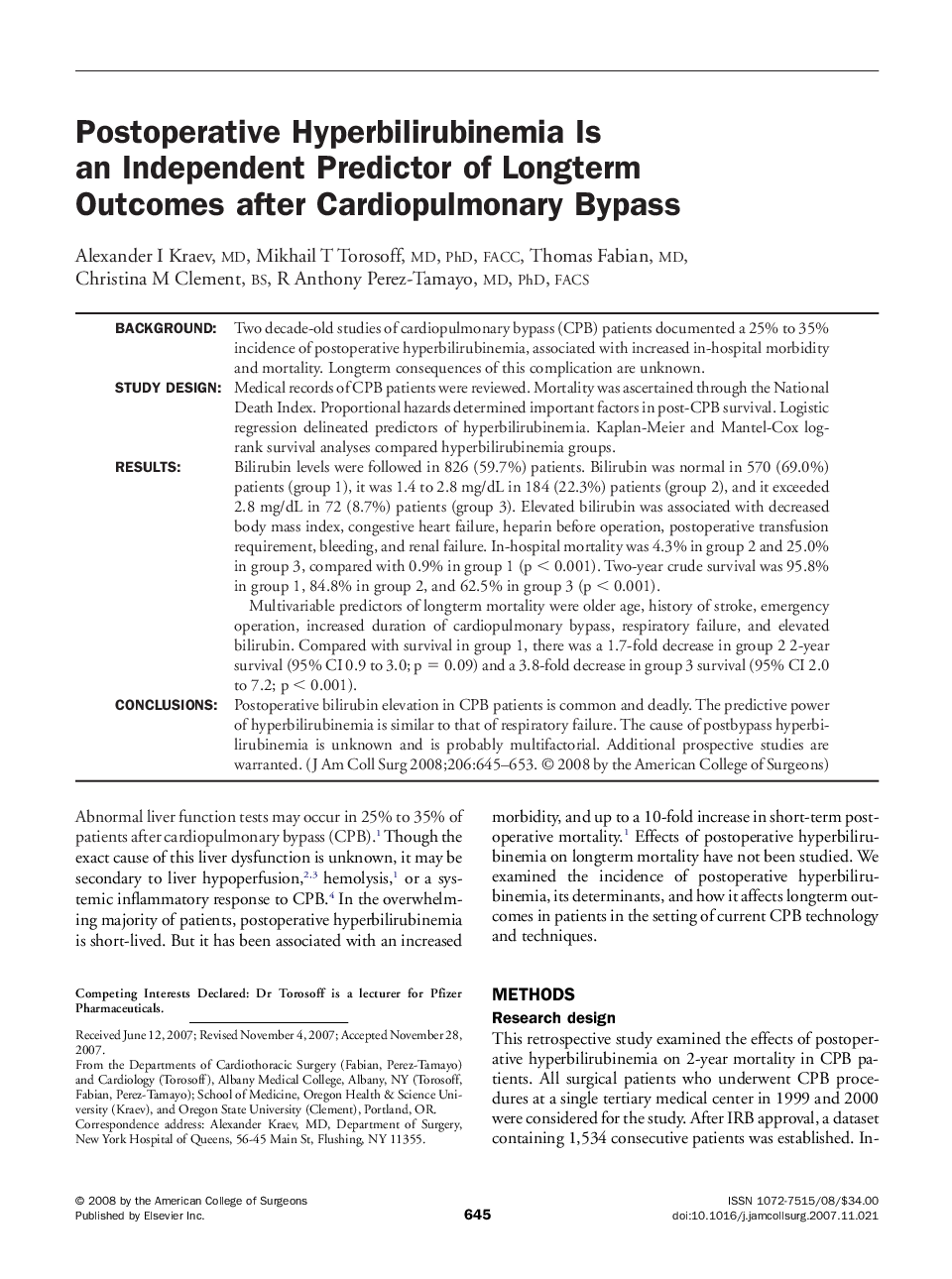| Article ID | Journal | Published Year | Pages | File Type |
|---|---|---|---|---|
| 4293969 | Journal of the American College of Surgeons | 2008 | 9 Pages |
BackgroundTwo decade-old studies of cardiopulmonary bypass (CPB) patients documented a 25% to 35% incidence of postoperative hyperbilirubinemia, associated with increased in-hospital morbidity and mortality. Longterm consequences of this complication are unknown.Study DesignMedical records of CPB patients were reviewed. Mortality was ascertained through the National Death Index. Proportional hazards determined important factors in post-CPB survival. Logistic regression delineated predictors of hyperbilirubinemia. Kaplan-Meier and Mantel-Cox log-rank survival analyses compared hyperbilirubinemia groups.ResultsBilirubin levels were followed in 826 (59.7%) patients. Bilirubin was normal in 570 (69.0%) patients (group 1), it was 1.4 to 2.8 mg/dL in 184 (22.3%) patients (group 2), and it exceeded 2.8 mg/dL in 72 (8.7%) patients (group 3). Elevated bilirubin was associated with decreased body mass index, congestive heart failure, heparin before operation, postoperative transfusion requirement, bleeding, and renal failure. In-hospital mortality was 4.3% in group 2 and 25.0% in group 3, compared with 0.9% in group 1 (p < 0.001). Two-year crude survival was 95.8% in group 1, 84.8% in group 2, and 62.5% in group 3 (p < 0.001).Multivariable predictors of longterm mortality were older age, history of stroke, emergency operation, increased duration of cardiopulmonary bypass, respiratory failure, and elevated bilirubin. Compared with survival in group 1, there was a 1.7-fold decrease in group 2 2-year survival (95% CI 0.9 to 3.0; p = 0.09) and a 3.8-fold decrease in group 3 survival (95% CI 2.0 to 7.2; p < 0.001).ConclusionsPostoperative bilirubin elevation in CPB patients is common and deadly. The predictive power of hyperbilirubinemia is similar to that of respiratory failure. The cause of postbypass hyperbilirubinemia is unknown and is probably multifactorial. Additional prospective studies are warranted.
